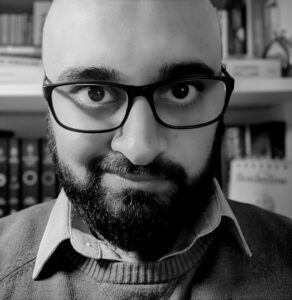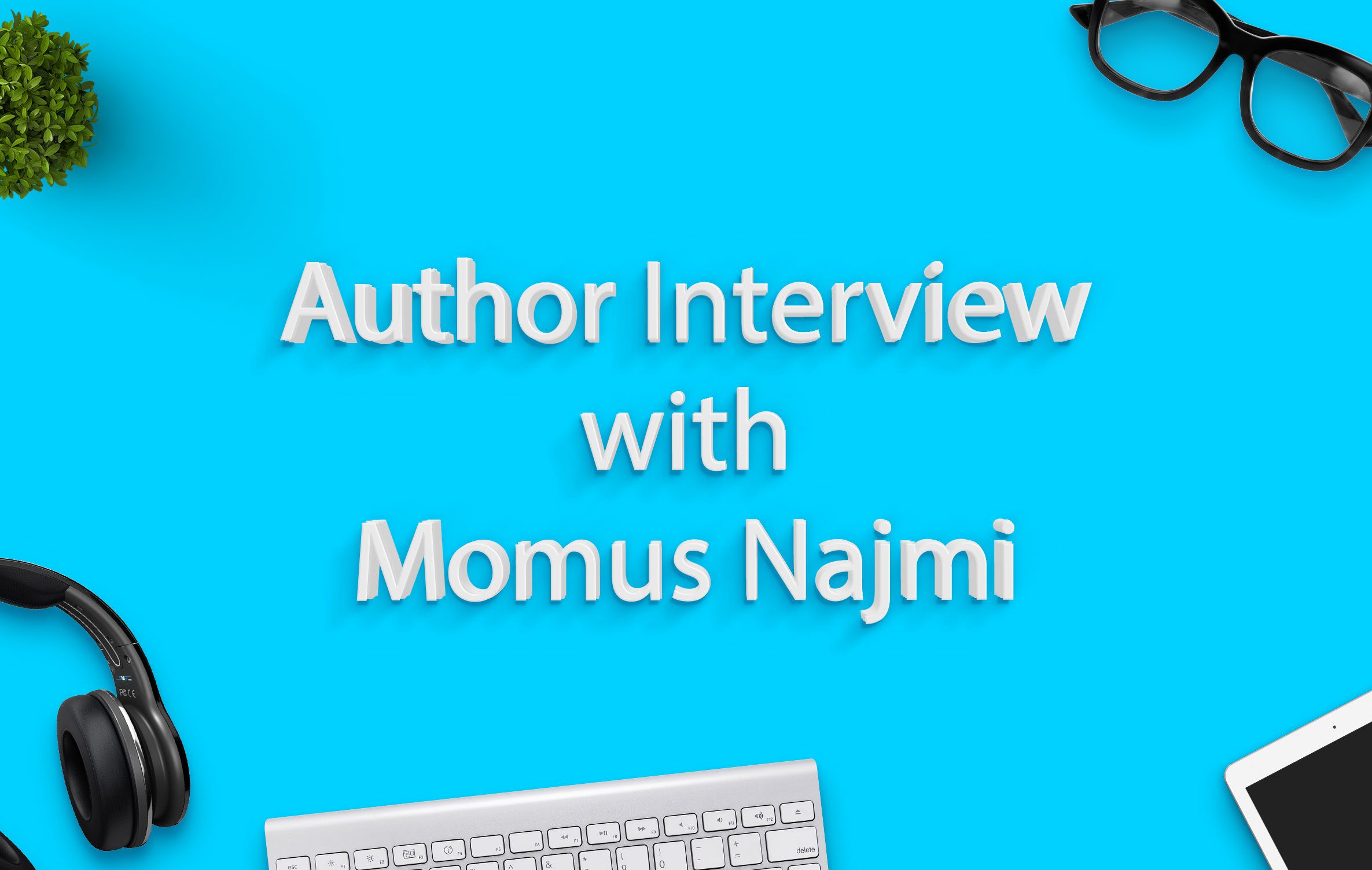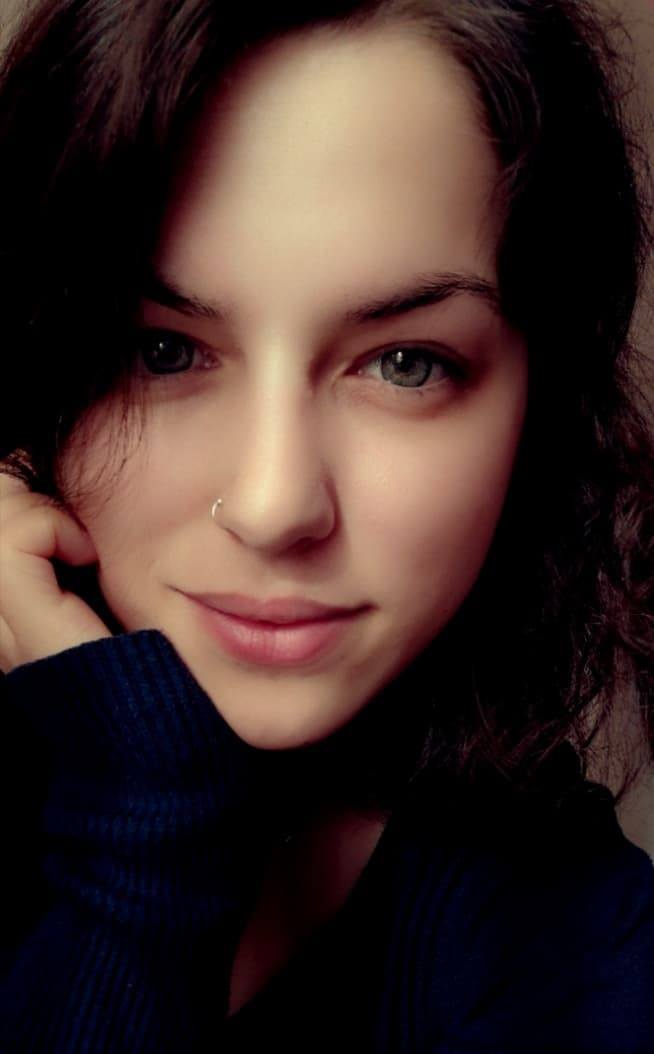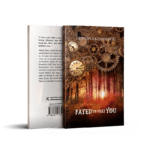 Momus Najmi is an author and an occasional poet, born during the spring of 1986, in Kuwait. He lived there till the age of 15, although had to take a brief refuge abroad with his family during the Gulf War. His family later moved to Pakistan, where he lived for just over a decade. He undertook his higher education in Karachi and later an undergraduate degree in Business Administration.
Momus Najmi is an author and an occasional poet, born during the spring of 1986, in Kuwait. He lived there till the age of 15, although had to take a brief refuge abroad with his family during the Gulf War. His family later moved to Pakistan, where he lived for just over a decade. He undertook his higher education in Karachi and later an undergraduate degree in Business Administration.
He then moved to London in 2010 and undertook a postgraduate in Creative and Professional Writing from Brunel University. He always felt an ideological and cultural disconnect with his country of birth and later residence, but came to find a visceral connection with Britain and so he decided to stay. He now lives in Essex with his Polish wife.
Momus is a secular humanist, a linguaphile and bibliophile with a deep appreciation for storytelling, developed from a young age. He advocates for freedom of thought and expression. His interests include exploring the abstract realities of the human mind and its absurd existence within the wonderful peculiarities of our universe.
‘Life is filled with a multitude of possibilities and we should explore as many avenues of thought as our interests can hold.’
1) According to your bio, you seem to love Britain. What part of it makes you feel more connected to this country?
Well yes, I love Great Britain and I am happy to call myself British, and in a weird way, it has been an extremely easy but complicated story so far. This will be a slightly longer answer.
See, I was born in Kuwait of Pakistani parents. Kuwait doesn’t give nationality to anyone with non-Kuwaiti heritage, so I was given a default Pakistani nationality. It’s the same in all middle eastern countries. Apart from the temporary stint out of Kuwait during the Gulf War, I spent my entire childhood, up until my mid-teen there. I grew up disconnected from my country of birth and from my parents’ country, in a sort of American/British/Subcontinental mix culture. I guess that is enough to confuse anyone about themselves. To add to that complexity, my popular culture influence was mostly American up to that time, but academic and literary interests were rooted within British literature and arts.
But see, I didn’t realize how unaware I was of my detachment till I moved to Pakistan and got a serious culture shock. I spent a decade there, immersing myself in the culture, and also learning about the impact of British Colonial past and the subsequent turmoil of the subcontinental people. But during that time, I also fell more in love with British literature, art, and most importantly comedy, and within all that even with all the history associated with the subcontinent and my roots so to speak, I found more of a connection with Britain. As a somewhat outsider looking into the problems of the subcontinent while through heritage belonging to it, I understood that the Britain of a certain imperialist time period was not the Britain of today and that it wasn’t alone in its intentions. Most empire-building nations go through phases of cruelty that do not seem as extreme when viewed within the context of the times they were in, no matter how unjust they might seem today. Plus, the then current problems of that region and of today, are the making of its own people and the lack of social responsibility taken for it – at least that is what I feel and remain puzzled by the hostility between people from Pakistan and India, unnecessary animosity.
And when I started having doubts about my religion given to me by birth, because of its restrictive and somewhat discriminatory tendencies, I found very little tolerance for such thoughts in Pakistan and so I looked towards Britain for my mental refuge, and it gave me safe harbor and a place to call home. And I also met my wife here, who is from Poland. A place where you can be who you are, be accepted, and be free to express yourself as you wish – it’s hard not to love Britain for me.
2) Have you ever considered writing under a pseudonym or are you currently writing under one? Why or why not?
I sort of write under a pseudonym, with my first name not being my official first name given to me at birth. But it is a name I prefer more, so perhaps in the future, I will officially change my name to my pseudonym.
It is a bit funny though because my surname is my grandfather’s pseudonym. He changed his and his children’s actual family surname to his pseudonym of Najmi, which means a star, or starred in Arabic. So, my name is actually a combination of two pen names.
3) As an author and poet, do you like to write in different genres or do you prefer sticking to a few specific ones?
I prefer not to think of genres, even though I have been advised multiple times to do so because apparently, it is easier to connect with the right publisher or market that way. But I really don’t care. I write what comes to me, and as the story takes shape, it chooses which genre to fall under.
Right now, my first novel is a first-person mystery thriller and I also have a collection of poetry. The second one I am working on is a novella, which is more of a psychological drama/mystery. I don’t even know what to label them as, to be honest, I just write stories, whichever way and in whatever form they come. And I understand, it is not ideal for marketing reasons to the readers, but that is how I read as well. I read anything and everything, as long as it is written well, and it has an engaging storyline.
4) You seem to love reading. Can you share some of your favorite books?
This can take a very long time, there are so many to share, at different times of my life, at different emotional stages of my mental development, I guess.
Let’s take a stab at it. So, the first book I read, when I was of more of a conscious mind, that I completely fell in love with would be, Frankenstein by Mary Shelley. I was very young, I think early teens. I don’t think I would call it my most favorite, even though I don’t think there is a clear one like that anyway, but it was definitely an eye-opener. Although the first non-novel I read which made me fall in love with the written word were sonnets and poems by William Shakespeare and John Keats.
Others, now I have a lot of favourites, both fiction and non-fiction, and I do have some recommendations on my website as well. But I will share some fiction novels that have inspired me the most and have had a significant impact on me at crucial times in my life.
The Sea by John Banville, Kafka on the Shore by Haruki Murakami, Lord of the Rings (The entire collection) by J.R.R. Tolkien, The Invisible Man by H.G. Wells, America by Franz Kafka, Animal Farm by George Orwell, The Book Thief by Markus Zusak, Notes from the Underground by Fyodor Dostoevsky, Resurrection by Leo Tolstoy, Thus Spoke Zarathustra by Friedrich Nietzsche, The Hitchhiker’s Guide to the Galaxy by Douglas Adams and Moby Dick by Herman Melville among many many others.
5) Many authors have inspired you; Haruki Murakami, John Banville, Franz Kafka, George Orwell, Tolkien, Fyodor Dostoevsky, H.G. Wells, John Keats and Douglas Adams. Do you also see their influence in your works?
I do and I do not. I think my writing voice is different from the authors who have influenced me. I guess, their influence has not been on the way I write but perhaps in attaining a license for unbridled and unencumbered imagination.
I acquired bit of an independent spirit, in the sense that I write for myself and because the story has to be written, rather than writing for an audience and tailoring myself to meet any sort of expectation in that regard. Yes, I think so in that sense they all have greatly inspired me.
And then another way that they have influenced me, is exploring the spaces in between a story. The thinking spots, where the minds wanders while time stays silent. Giving life to something mundane. Connecting the ordinary to the extraordinary circumstances of a story yet keeping its humble aspirations of remaining anonymous. I got the taste for exploring those abstractions, realities within realities, which goes nowhere but explains everything. That is how they have most influenced me, in those explorations.
6) You have undertaken a postgraduate in Creative and Professional Writing. In your opinion, is it important for a writer to have a writing-related degree?
No, it is not important. But everyone is different. Personally, that postgraduate taught me less than I already learned and still learning by just reading well. Although I was fortunate enough to have at least two really good lecturers, who gave me sound advice which nudged my thinking earlier than it would have on its own or perhaps never.
But no, absolutely not, it is not important for a writer to have any sort of degree, writing, literature, or otherwise. There is no degree, no course, no qualification in the world that can make you a writer. Only that itch inside, that insatiable itch, only that can make you a writer and the experiences that you have accumulated over your life, which may or may not include any sort of formal education, informing your itch – but ultimately you alone can scratch it.
7) Among your two books, you seem to love your poetry collection more. Why is that?
I started writing poetry when I was very young, as a way of collating my thoughts without having to explain it all so I can explore them further at a later stage. That is my first memory of writing something that gave me a significant feeling. There is so much you can express within it, with so few words. A lot of it left unspoken but understood.
But this specific collection is an accumulation of over a decade or so of my poetry, most of it reimagined and rewritten and then finally made into a collection. It was a long time in the making. I have a history with it. All of them have been written not to be a part of this collection but written at times of strong emotions, pouring out of their own volition.
I do not even know if it’s poetry, they are just free form verses, working thoughts jotted down. I love it more because when I revisit them at times, I do not remember writing most of them. I do not love them because they are good, I am never really satisfied with what I write and I don’t think they are good, but they have just been with me the longest.
8) What are you currently working on?
I am working on a novella, with the working title of Insan (it is a persian/urdu word which means human). It is roughly about a guy who has had a tragic life, which has led him to extremist and destructive paths. And now he is reevaluating his decisions, by taking a journey into his mind and conversing with his many archetypes.
I actually wrote this story almost ten or so years ago, as a short script to be made into an independent movie but it never panned out. And now I have changed, adapted, and improved the storyline, to make it into a novella instead.
The other thing I am working on, which is already out there now is my new podcast, ‘The World of Momus’ – which is intended to be a lot of episodes about various historical interesting facts, and stories along with my random thoughts. That is available on Anchor, Spotify, Google podcast, and many others.
9) Share a favorite quote from one of your books.
From, The Silent Betrayal,
‘………. There are choices we can make, we are told. We are free to choose as we please, free. But are we really and can we really choose? Choice is an illusion given to us to make us believe that there is any freedom involved in our lives. And this illusion does become a reality when we spring the thought into existence by believing in it, but the freedom of its undertaking still remains an illusion. We live in a world where we are controlled by the thought of our freedom, we are free, free enough to cage ourselves in the illusion of freedom. An absolute waste of intellect.’
From the poem, In the arbour of shaded life, in Mumblings of a Fool (poetry collection)
In the arbour of shaded life,
I sit and dream of flying a kite,
But the string is lost and lost is the heart,
Wind is blowing the seasons apart …….
10) What are some of your biggest writing goals that you’re hoping to achieve in the near future?
Well, I have now five novels quarter to half of the way written, and four more with the overview of storylines all planned out. So, my writing goal is to just finish one as soon as possible before getting distracted by another story.
I hope to finish the first draft of, Insan, in the coming months, and then we will see where the journey takes me from there.
Apart from that, I don’t have any major goals. I just wish to write as much as I can and for as long as I can. May my work be read by one person, or one hundred, or one million, it matters less to me than writing whatever comes to me, whenever it does.
You can find author Momus Najmi and his work here;
Amazon: amazon.com/Momus-Najmi/e/B07KKG6C46
Goodreads: goodreads.com/author/show/13495877.Momus_Najmi
Bookbub: bookbub.com/authors/momus-najmi
Author Website: momusnajmi.net/author/momusnajmi/
Twitter: twitter.com/momusnajmi
Instagram: instagram.com/momusnajmi/
Spotify: open.spotify.com/show/4lzfrwI0xSvalJraTJgFUs



